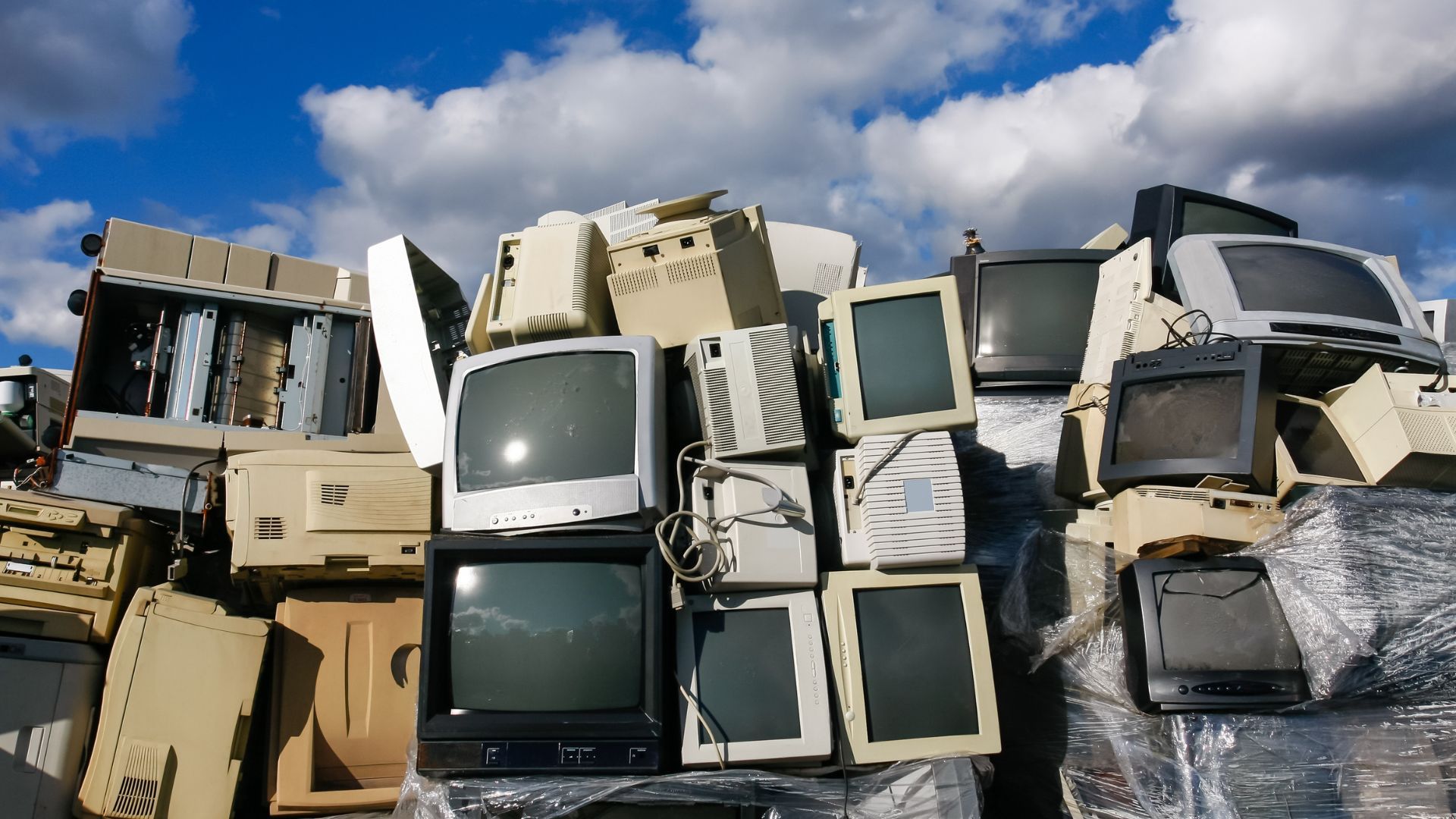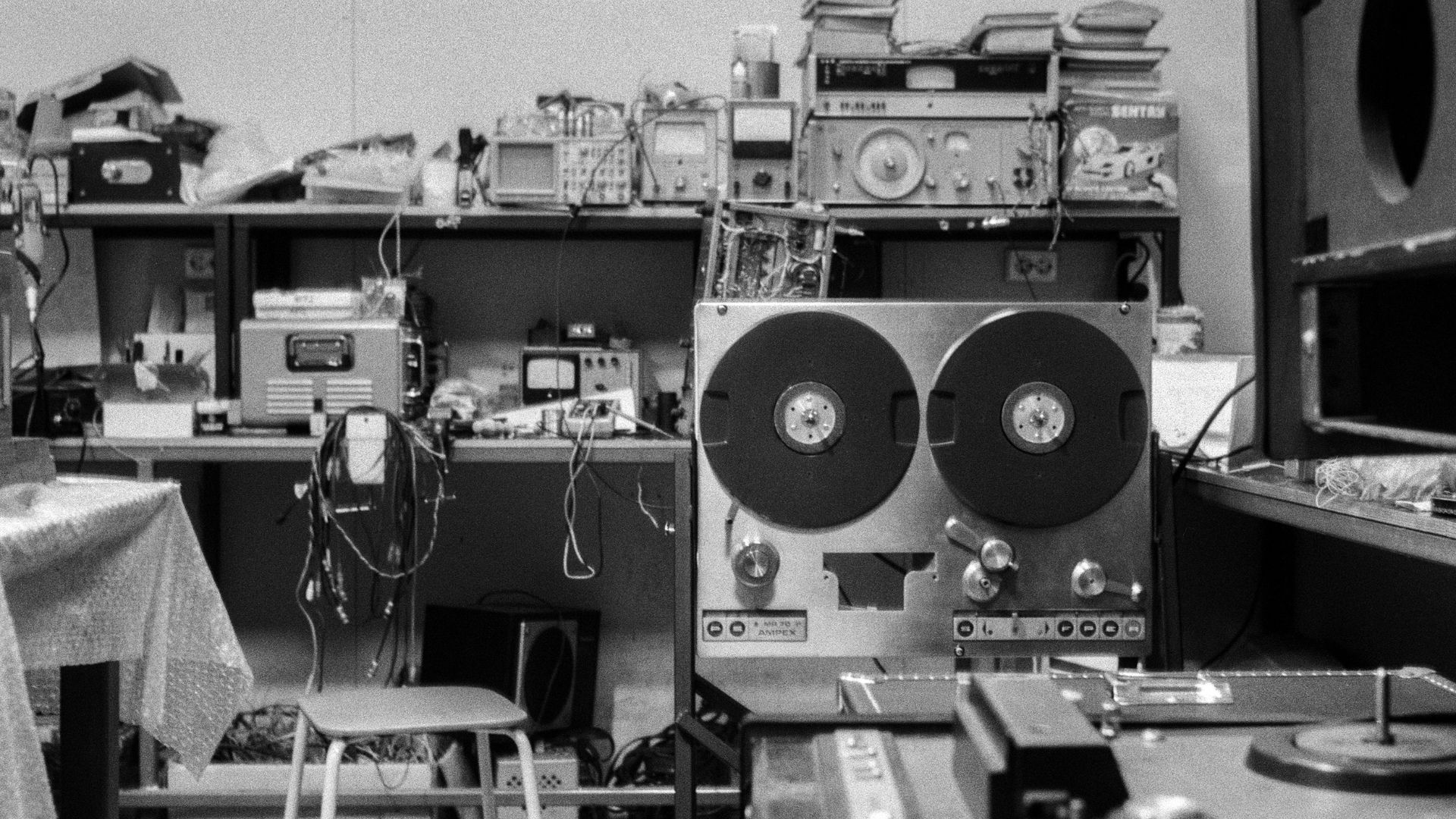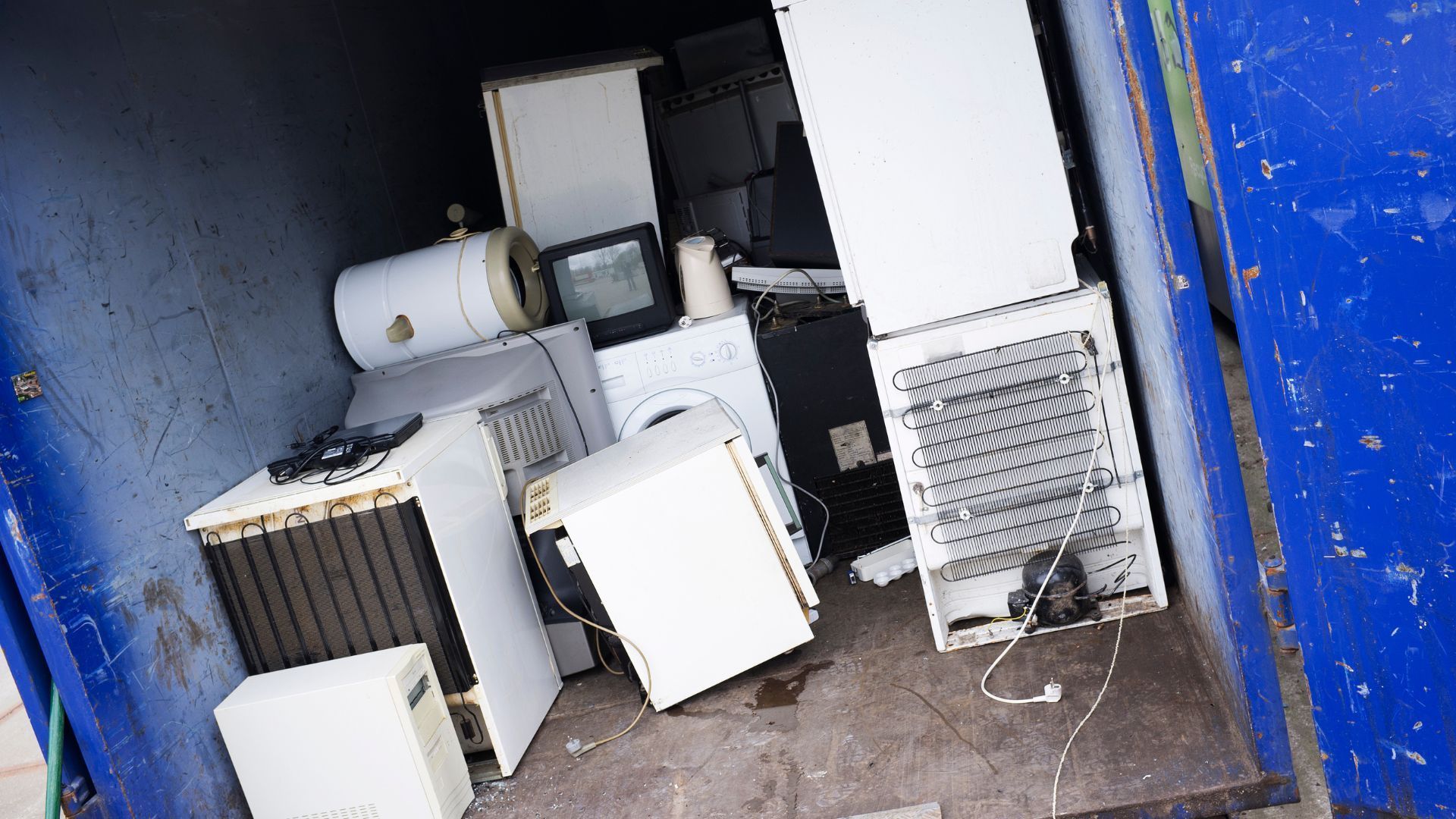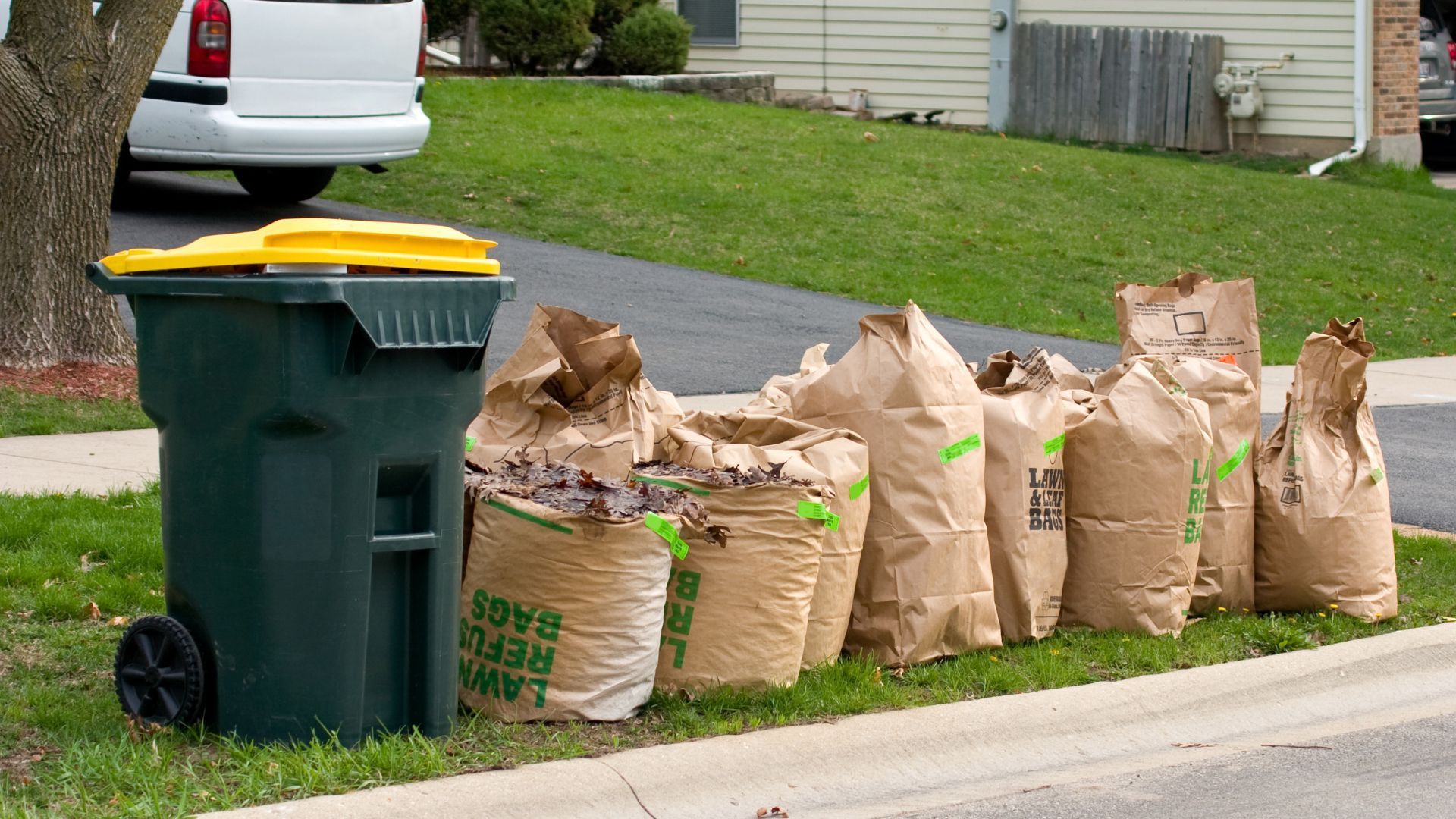The Best Way to Get Rid of Old Televisions and Electronics
Old televisions and outdated electronics tend to linger in garages, closets, and spare rooms far longer than they should. Unlike everyday trash, these items cannot simply be tossed into a bin due to the hazardous materials inside them. From lead-filled glass to heavy metals in circuit boards, electronics require special handling to prevent environmental damage and comply with disposal regulations.
Finding the best way to get rid of these items means exploring safe, legal, and practical solutions that prioritize convenience while protecting the planet. Whether you’re downsizing, replacing outdated tech, or clearing clutter, understanding your options helps you make informed decisions. With the right approach, getting rid of electronics becomes a responsible step toward a cleaner, more organized living space.
Understanding Why Electronics Require Special Disposal
Electronics contain a mix of plastics, metals, and hazardous materials that make them unsuitable for standard disposal. Items like televisions, monitors, and computers often include lead, mercury, and cadmium—substances that can contaminate soil and water if left in landfills. This risk makes it essential to handle these items responsibly. Throwing them away with household garbage not only harms the environment but can also violate local waste laws.
On the positive side, many electronics contain valuable materials that can be reclaimed through proper recycling. Metals such as copper, aluminum, and even small amounts of gold can be recovered and reused in manufacturing. By choosing the right disposal path, you help conserve resources while ensuring hazardous waste doesn’t harm ecosystems. This dual benefit highlights why electronic waste requires a more thoughtful approach compared to everyday household trash.
Identifying Electronics That Should Be Removed
When planning a cleanout, it’s helpful to know which electronics need to be removed rather than stored indefinitely. Older televisions, particularly bulky CRT models, are among the most important due to their high lead content. Similarly, outdated desktop computers, printers, and fax machines often take up valuable space without serving a purpose. Keeping them around only adds clutter without offering any functional benefit.
Small devices like cell phones, tablets, and old gaming consoles may seem insignificant, but collectively they contribute to a large portion of electronic waste. Even non-functioning cables, chargers, and accessories are worth removing, as they contain materials that can be recycled. Identifying and gathering these items ensures you don’t overlook hidden clutter during a larger cleanout. Knowing what qualifies as electronic waste is the first step toward clearing space efficiently and disposing of items in a responsible, eco-friendly manner.

Preparing Electronics Before Disposal
Before handing over old electronics, it’s important to prepare them properly. Devices such as computers, tablets, and phones often contain personal data that should not be left behind. Taking time to back up important files and perform a factory reset protects your privacy and ensures sensitive information isn’t exposed after disposal. Even items that seem broken may still have retrievable data stored inside.
Additionally, separating batteries, removable parts, and accessories can simplify recycling. Many recycling centers request that lithium-ion or rechargeable batteries be handled separately due to their fire risk. Collecting cables, remotes, or extra components with the device also makes the process smoother. Proper preparation not only ensures security but also helps recycling facilities process materials more effectively. By organizing electronics before disposal, you streamline the transition from cluttered storage to eco-friendly removal.
Recycling Options For Old Televisions And Devices
Recycling is one of the most effective solutions for handling old electronics. Many communities host designated e-waste recycling events where residents can drop off unwanted items for proper processing. These programs ensure hazardous materials are disposed of safely while reclaiming valuable metals and plastics for reuse. Participating in such initiatives helps reduce landfill waste and supports sustainable manufacturing practices.
Some electronic retailers also offer trade-in or take-back programs. These services often provide store credit in exchange for devices that can be refurbished or recycled. Larger electronics, like televisions, may require specific recycling partners who are equipped to handle the unique materials inside. Exploring local recycling centers or partnering with certified recyclers ensures your items are managed responsibly. Recycling may take some extra effort, but the environmental payoff and peace of mind make it the most rewarding option for electronic disposal.
Donating Electronics That Still Work
Not all electronics destined for removal are completely useless. Devices that still function, even if outdated, may serve someone else’s needs. Donating old televisions, computers, or audio equipment to schools, community centers, or charitable organizations extends the lifespan of these products while reducing waste. For families or groups with limited budgets, gently used electronics can provide valuable access to technology.
Before donating, ensure that devices are in good working order and that all personal data has been securely erased. Including necessary accessories like power cords or remotes increases the likelihood of the donation being used. Many nonprofits gladly accept older but functional equipment, saving them money while providing a useful resource. Choosing donation over disposal creates a positive impact by supporting community initiatives and keeping electronics out of landfills for as long as possible.
Exploring Retailer And Manufacturer Take-Back Programs
Many electronics manufacturers and retailers now provide take-back programs to encourage responsible disposal. These programs allow customers to return old devices when purchasing replacements, ensuring they are recycled or refurbished appropriately. Television brands, computer companies, and major retailers often have dedicated channels for accepting older models. This approach simplifies the process and eliminates the guesswork of finding a certified recycler.
Take-back programs also benefit consumers who want assurance that their devices won’t end up in landfills. Some companies offer discounts or incentives for participating, adding value to the process. Whether dropping off small gadgets at a store or scheduling a pickup for larger equipment, these programs provide convenient and reliable options. Exploring retailer and manufacturer initiatives ensures that electronics are disposed of properly while rewarding environmentally conscious choices with added convenience or financial perks.
Avoiding Illegal Dumping And Unsafe Disposal
One of the biggest challenges in electronic waste management is preventing illegal dumping. It may be tempting to leave a bulky television or broken computer at the curb, but this approach can create environmental hazards and may even result in fines. Many municipalities enforce strict guidelines for e-waste disposal, recognizing the dangers of letting toxic materials seep into soil and water.
Unsafe practices, such as burning wires to extract copper or discarding batteries in regular trash, are equally damaging. These actions release harmful chemicals into the air or create fire hazards in waste facilities. Responsible disposal means taking the time to follow proper channels, whether through recycling centers, donation, or professional removal services. By avoiding shortcuts, you protect both the environment and your community while ensuring compliance with local laws.
Choosing Professional Help For Electronic Disposal
For many people, the easiest and most reliable way to handle old electronics is by hiring professional removal services. These experts are equipped to manage bulky televisions, heavy monitors, and outdated appliances without hassle. Professionals know how to handle hazardous components, transport items safely, and ensure everything is taken to an approved recycling or disposal facility.
This option is particularly beneficial when dealing with large quantities of electronic waste or oversized items that are difficult to move alone. Professional services also save time, sparing homeowners from researching local regulations or scheduling multiple drop-offs. By relying on trained specialists, you gain peace of mind knowing that the job is handled efficiently and responsibly. For busy households or commercial spaces, professional help transforms a complicated chore into a quick and stress-free solution.
Organizing A Household Electronics Cleanout
Cluttered households often contain a surprising number of unused electronics scattered across various rooms. From outdated DVD players to tangled cords, these items accumulate over the years without notice. Organizing a focused cleanout allows you to gather all unused devices at once, simplifying the disposal process. By tackling electronics in bulk, you save time while ensuring nothing is overlooked.
Create designated piles for items to recycle, donate, or dispose of professionally. Sorting everything beforehand helps you decide which route is best for each device. A household electronics cleanout also creates space for more functional uses, eliminating the frustration of cluttered drawers and storage areas. When approached methodically, this type of cleanout offers both practical benefits and a sense of accomplishment as you reclaim order in your home.
Embracing Eco-Friendly Practices When Removing Electronics
Electronic disposal doesn’t have to be wasteful; in fact, it can contribute to more sustainable living when done correctly. Recycling conserves valuable resources, while donating extends the life of functional items. Opting for eco-friendly disposal methods reduces landfill impact and supports cleaner communities. These small but deliberate actions make a meaningful difference in reducing your household’s environmental footprint.
Beyond personal benefits, eco-friendly disposal also encourages manufacturers to prioritize sustainable production practices. By returning electronics to certified channels, you support a circular economy where materials are continually reused. Choosing environmentally conscious solutions transforms electronic waste from a burden into an opportunity for positive change. Every responsible decision contributes to a healthier planet while giving you peace of mind that your actions align with broader efforts to preserve resources.
Conclusion
Getting rid of old televisions and electronics requires more than simply hauling them to the curb. From understanding the hazards they contain to exploring recycling, donation, or professional removal, every step plays a role in ensuring safe and responsible disposal. By choosing thoughtful solutions, you create more space at home while protecting the environment.
For convenient and reliable assistance, contact Freedom Junk Removal in Pinellas Park, FL. Their team offers professional electronic waste removal that takes the stress out of the process. Call (727) 295-2143 or email info@freedomjunkremoval.net to schedule a pickup and enjoy peace of mind knowing your old electronics will be handled the right way.





